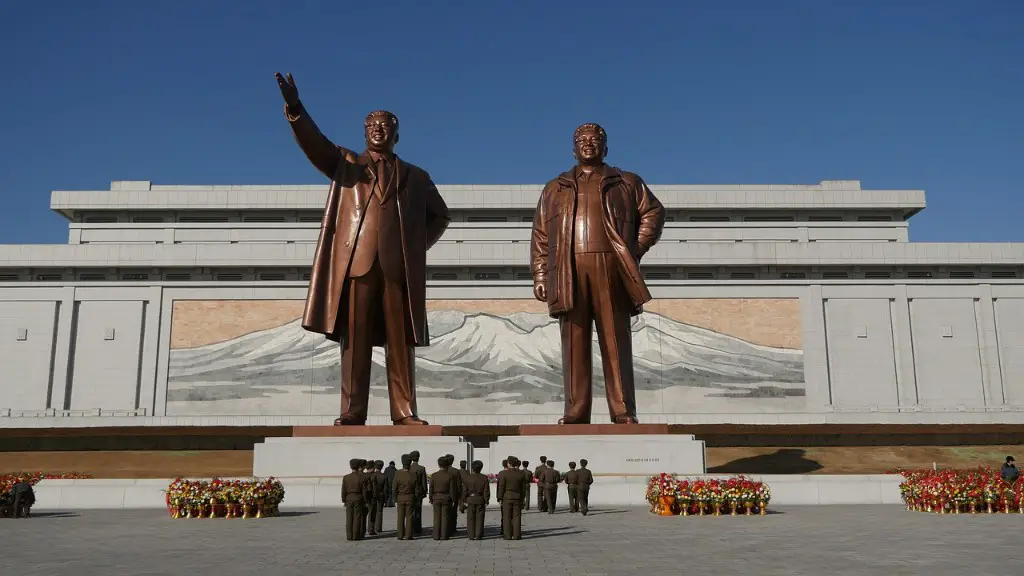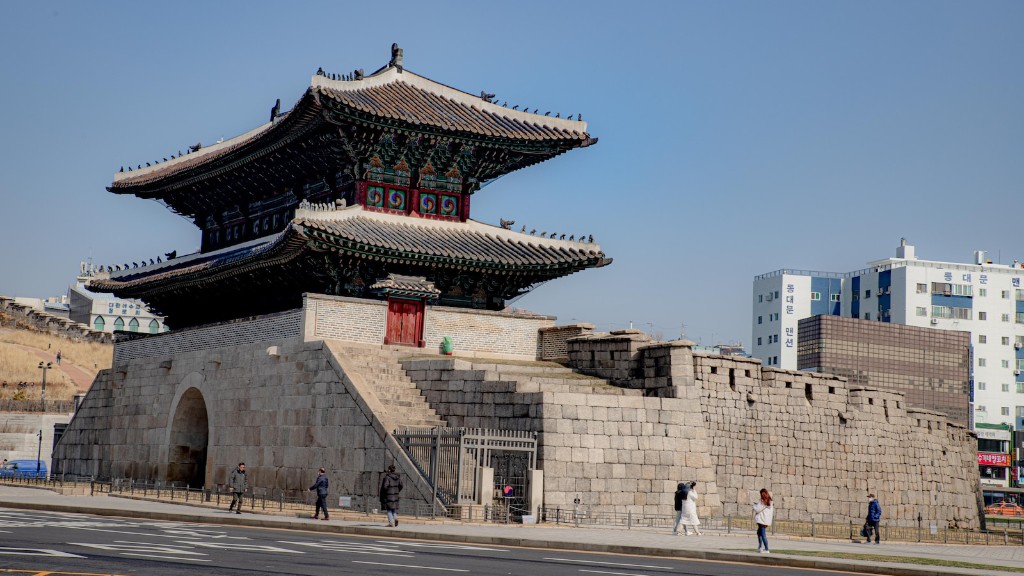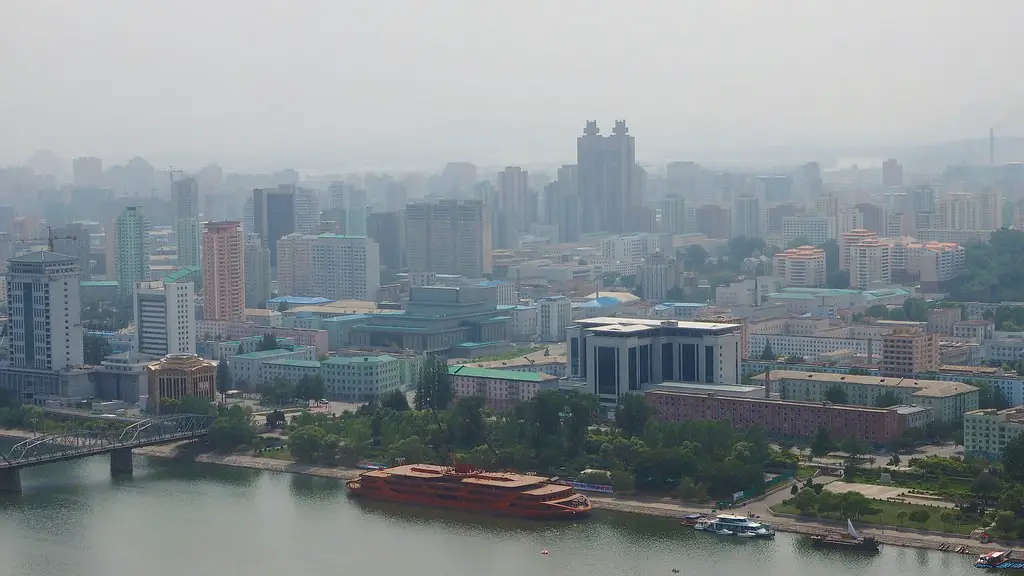Kim Jong Un is a North Korean dictator and the supreme leader of North Korea, succeeding his father Kim Jong Il in 2011. In the same year, Kim Jong Un declared that his policy would be one of “economic development and military power,” a move that heavily shaped North Korea’s economy and international relations. Kim Yong Un has undeniably changed North Korea, both domestically and internationally.
Kim Jong Un has been described by the United Nations as a “human rights violator of the highest order.” He has been highly criticized for his oppressive regime, with the United Nations Commission of Inquiry on Human Rights in North Korea calling out the “gravity, scale and nature” of the rights violations taking place in the country. Under Kim Jong Un’s rule, the North Korean government has continued to monitor every aspect of its citizens’ lives, and reports suggest that political prisoners continue to be subjected to torture, murder, and industrial slavery.
Kim Jong Un has undertaken drastic economic reforms in North Korea. While North Korea had been facing a growing economic crisis due to the collapse of the Soviet Union, it has seen some improvement under the leadership of Kim Jong Un. He has implemented technological and industrial reforms, as well as supporting the expansion of its export markets. Despite these efforts, North Korea still remains a largely closed economy with extremely limited access to international markets.
Kim Jong Un’s approach to foreign relations is also noteworthy. He has met with the presidents of China, South Korea, and the United States to discuss the denuclearization of the Korean peninsula and establish diplomatic relations. He has also attempted to build stronger economic ties with China and Russia despite international sanctions.
Impact on North Korea
Kim Jong Un’s rule has had a mixed effect on the lives of North Koreans. On the one hand, he has been praised for his efforts to introduce economic reforms and improve technological capabilities. On the other hand, his oppressive rule has been highly criticized. Despite his efforts to improve the country’s economy, North Koreans still face extreme poverty and human rights violations.
Kim Jong Un has also attempted to improve North Korea’s international standing. His willingness to meet with world leaders and his efforts to denuclearize the Korean peninsula have been praised by some as a way to build trust and open diplomatic channels. However, his efforts have been met with skepticism by many in the international community.
Actions of Kim Jong Un
Apart from his efforts to reform North Korea’s economy and foreign relations, Kim Jong Un has also taken some controversial actions. In 2013, he executed his uncle, Jang Song Thaek, on charges of corruption and treason. In 2017, he also tested a powerful hydrogen bomb, prompting criticism from leaders across the world.
Kim Jong Un has also imposed a number of restrictions on North Koreans, such as limiting freedom of movement and access to information. He has also reportedly cracked down on the activities of North Korean defectors, with reports suggesting that some have been sent back to North Korea and subjected to torture or execution.
Kim Jong Un and North Korea’s Nuclear Program
One of the most concerning aspects of Kim Jong Un’s rule is the continued advancement of North Korea’s nuclear program. Despite facing international pressure, Kim Jong Un has continued to develop North Korea’s nuclear weapons, prompting concern among all nuclear nations. Kim Jong Un has also made threats, specifically to the United States, South Korea, and Japan, that he will use nuclear weapons in order to gain leverage in international negotiations.
Position of the International Community
The international community has taken a number of steps to try and convince Kim Jong Un to cease his nuclear programme. The United Nations has imposed sanctions in an effort to limit the financial resources that fund the program. The United States and South Korea have also conducted military drills in an effort to intimidate Kim Jong Un and demonstrate their resolve.
However, despite these efforts, Kim Jong Un has continued to advance North Korea’s nuclear capabilities. This has prompted many nations, including the United States, to shift their focus to pursuing diplomatic solutions and trying to negotiate a peaceful denuclearization of the Korean peninsula.
Potential Repercussions of Kim Jong Un’s Rule
The actions of Kim Jong Un have the potential to have far-reaching consequences. His willingness to use nuclear weapons and his refusal to adhere to international norms could spark a new arms race in Asia, prompting other countries to acquire nuclear weapons to counter North Korea. This could have destabilizing effects throughout the region and could potentially spark a new conflict.
As Kim Jong Un continues to consolidate his power in North Korea, the international community will need to address the security implications of his rule. It will be essential to find ways to persuade him to denuclearize and stop his repressive rule while also ensuring that the rights of citizens of North Korea are respected.
Economic Sanctions
In response to the continued development of North Korea’s nuclear program, the United Nations has imposed economic sanctions against North Korea, hoping to create pressure on the country to come to the negotiating table. These sanctions have been criticized for potentially harming the North Korean population, with humanitarian aid workers expressing concerns about their impact on access to food, medicine, and other necessities.
At the same time, some argue that sanctions may be the only way to bring North Korea to the negotiating table and could potentially lead to a diplomatic solution. However, it remains to be seen if sanctions will be effective in pressuring Kim Jong Un to denuclearize.
U.S.-North Korea Relations
Kim Jong Un’s actions have also impacted U.S.-North Korean relations. The United States has historically been deeply suspicious of North Korea, viewing it as a threat to world peace and security. Under the administration of President Donald Trump, the U.S.-North Korea relationship has become increasingly strained, with Trump having threatened to “totally destroy” North Korea if it continues to develop nuclear weapons.
Despite this, the Trump administration has recently expressed willingness to pursue diplomatic solutions with North Korea and to attempt to reach an agreement on the denuclearization of the Korean peninsula. Whether this will be successful remains to be seen, with many experts arguing that Kim Jong Un is unlikely to give up his nuclear weapons without a great deal of international pressure.
China-North Korea Relations
China is North Korea’s closest ally, and has traditionally supported North Korea’s regime, even as the United States and other countries have sought to impose international sanctions. Recently, China has taken a more conciliatory approach, expressing support for a diplomatic solution and offering to host talks between the United States and North Korea.
China has also provided economic support to North Korea, despite international sanctions. During a recent visit to North Korea, Chinese President Xi Jinping pledged to continue to use “friendly policies and friendly measures” towards North Korea in an effort to “fully realize denuclearization and lasting peace on the Korean peninsula.”
South Korea-North Korea Relations
The two Koreas have a long history of enmity and distrust, dating back to the division of the Korean peninsula following World War II. Under the rule of Kim Jong Un, tensions between the two Koreas have eased somewhat, prompting the historic meeting between North Korean leader Kim Jong Un and South Korean President Moon Jae-in in April 2018.
During the summit, Kim Jong Un and President Moon discussed the possibility of denuclearization and a peace treaty, although there has been no concrete progress towards these goals. The two leaders have agreed to meet once again, and have also agreed to open a number of military and joint economic projects. It remains to be seen if these rapprochement efforts will lead to lasting peace on the Korean peninsula.


